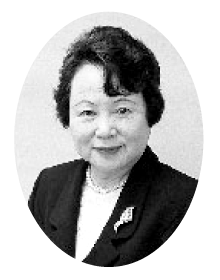| Home > Policy > White Paper, Notice, Announcement > White Paper > Japanese Government Policies in Education, Culture, Sports, Science and Technology 2001 >Foreword | ||

For Japan to develop as a dynamic nation in the 21st century and to ensure a bright future whereby children can embrace and realize their hopes and dreams, I believe it is important that education be a foundation for the nation's next hundred years and we actively undertake reforms toward the realization of a "nation of human resources and education" and "a nation based on creativity in science and technology," and work to achieve an increase in intellectual assets and the creation of a fulfilling and enriching society. Since the formation of the Ministry of Education, Culture, Sports, Science and Technology on 6 January 2001, we have been actively advancing a variety of reforms to respond to the changing times in respect to policies for education, culture, sports, science and technology. This White Paper is published to inform the people of Japan and the wider international audience the measures that we have been undertaking.
After WWII, education in Japan has been based on the concept of equal opportunity for all, and through the expansion of education and the improvement of its standards, education has largely contributed to the development of Japan's economy and society. However, with the collapse of the East-West Cold War structure and a global environment where competition continues to intensify, Japan's economy and society now stand at a significant turning point. In this stringent situation, for Japan to effectively face the new era and continue to develop as a member of the international community, an urgent challenge is to introduce reform to education, which forms the foundation of the nation, and nurture people who can meet the challenges of the new era.
The Ministry of Education, Culture, Sports, Science and Technology is currently progressing earnestly with educational reforms, including the implementation of the Educational Reform Plan for the 21st Century, which is based on the proposals of the National Commission on Educational Reform.
The feature of this year's White Paper, Educational Reform for the 21st Century, describes the advances in education made in the post-war period of the 20th century and based on the measures taken in the past, aims to give an overall view of educational reform for the 21st century, setting out concretely the modalities for future educational reform and the outcomes of such reforms.
I hope that this White Paper will be utilized widely and will enhance your understanding of the Japanese Government's overall policies concerning education, culture, sports, science and technology. Toyama Atsuko Minister of Education, Culture, Sports, Science and Technology
January 2002
| Back To Top | MEXT HOME |